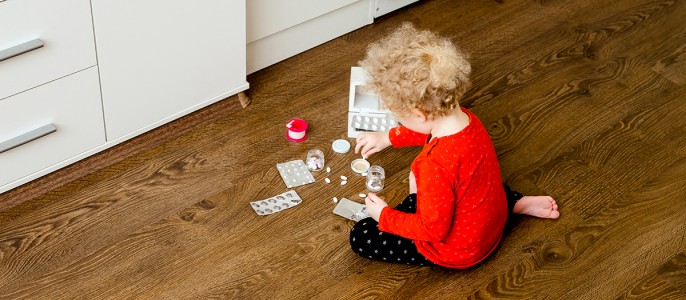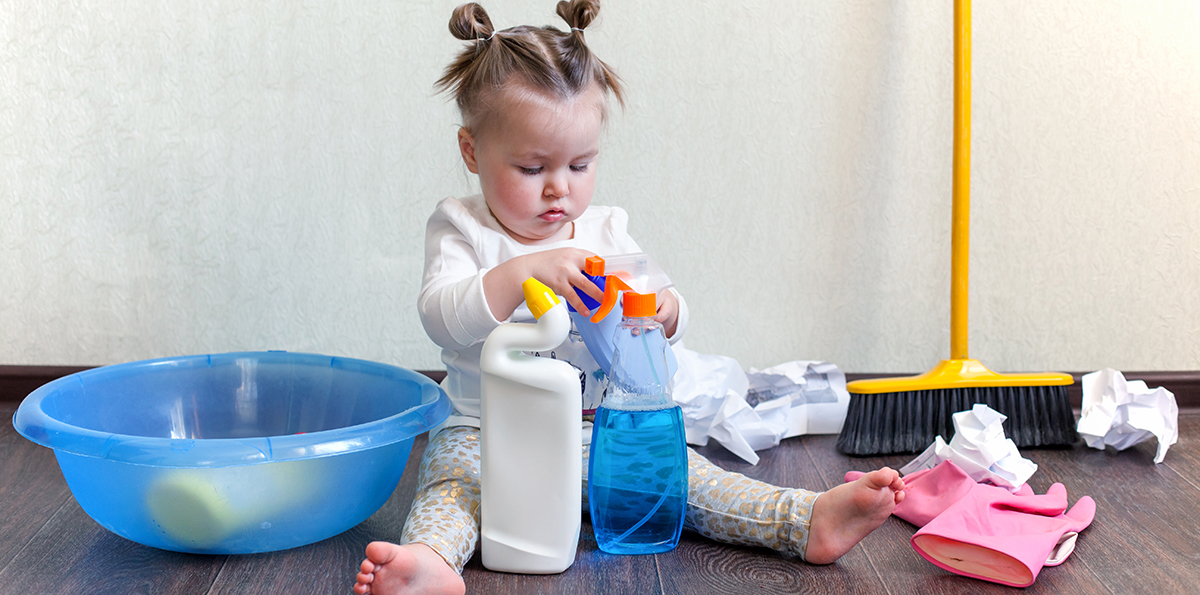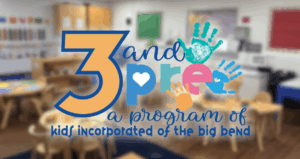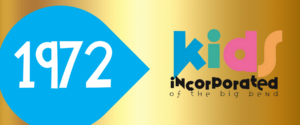It is a natural instinct to want to keep our children safe, healthy and happy. With September being National Baby Safety Month, Kids Incorporated wanted to share poison prevention tips especially relevant for the 0-3 year olds we serve in the Big Bend area.
Poison Prevention
When you think of accidental poisoning, chemicals used for house cleaning and bug prevention are often top of mind. In reality, the number of products harmful to humans, especially babies, is more extensive than most realize. Educating yourself on what products are unsafe and how to limit access will keep your whole family safer.
Home Products
Read labels on products you have in your home, or before buying. Any product that contains hazardous ingredients is required to have warnings on the label listing potential dangers of ingestion, eye exposure or skin irritation. One of the products that has caused poisoning of children 0-5 the last few years has been detergent pods. To babies and toddlers, the pods look like candy with bright colors and patterns. Poison control centers managed more than 10,000 cases related to laundry detergent pods in 2020.
The best prevention is to put poisonous household items out of reach of children. Upper cabinets are best. Consider a high shelf in the garage as another storage option. If under-counter storage is the only option, make sure it has a child safety lock. If your baby does ingest a potentially harmful substance, call Poison Control at 800.222.1222, your child’s healthcare provider or go to the nearest emergency room.
According to the CDC, “Over 90% of emergency department visits for unintentional medication overdoses among children under the age of 5 involve children who get into medicine on their own.”
Though over-the-counter and prescribed medicines are meant to assist in healing, they are a hazard to curious babies who have a tendancy to put everything in their mouths. Adult vitamins and supplements pose a risk due to the higher dosages – poison control centers handle more than 60,000 cases of vitamin toxicity yearly.
Prescription Medicine and Vitamin Supplements
To keep curious hands off medicines, vitamins and more, lock the bottles away out of reach. Most medicine cabinets are high enough to be inaccessible. If not, find a lockable box like those used for petty cash. Try to limit babies and young children seeing you with your medicine. The pretty colors make them look like candy and if Mommy or Daddy like them, they must be good.
TIP: Remember, no lock is 100% child proof.
It is common to have unused or expired prescription medicine taking up space in your bathroom. To clean the clutter and take away the risk of poisoning, take advantage of programs available within your community. October 1 is National Prescription Drug Take Back Day. Twice a year the U.S. Drug Enforcement Administration hosts collection sites, no questions asked, for safe disposal of prescription drugs. Find more information on local disposal locations and other disposal options from the Food and Drug Administration here.
Unexpected Risk for Poisoning: Guests and Vacations
With your home cleaning products in a safe place and medicines locked away, it is easy to think of your babies and toddlers as being secure from poisoning. The reality is new circumstances like having guests or taking vacations bring new risks that can be easily managed with education and awareness.
Let’s use family visiting for the holidays as an example. Educate them ahead of time on the measures you have taken to prevent accidental poisoning. Ask your guests to keep their medicines and any other hazardous products together and provide them a secure solution for storage during their stay.

When your family is the one visiting, provide your own safe storage solution for medicines and supplements that is easy to incorporate into travel, including overnights in hotel rooms. If your vacation includes staying at the homes of friends or family, be proactive in asking ahead of time how your host handles poison prevention. If hosts do not have children in their home, they may not have a plan in place. They may be fine with accommodating some temporary changes for the duration of your visit, but expecting permanent installations of child safety cabinet locks is not realistic. Instead, ask adults in the home to help you keep an eye on your curious explorer, minimizing opportunities for exposure to any poisonous substances.
Wherever you may be, at home, a friend’s house or visiting family for the holidays, vigilance will be your best strategy to minimize accidental poisoning. Keep the Poison Control hotline 800.222.1222 number close, programed into your phone and easily accessible in the kitchen, bathrooms and baby’s room.
September may be National Safe Baby Month, but we know keeping children safe is important every day of the year. At Kids Incorporated, we care about the health and safety of the families and children in our programs. Our early learning and pregnant women information helps with car seat safety, nutrition, babyproofing your home and more.
Read more about services, volunteer programs and donor support or call 850-414-9800 today.




